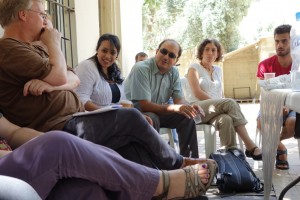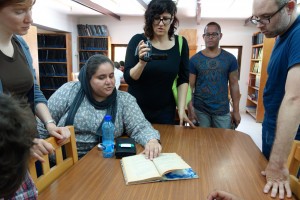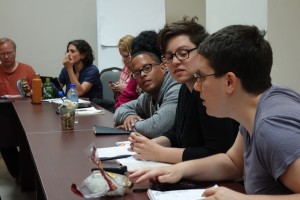Our History
In June and July 2013, a delegation of librarians, archivists, and other information workers (from the US, Canada, Sweden, Trinidad & Tobago, and Palestine) traveled to Palestine. Our trip aimed to learn how Palestinian voices and information about Palestine do—or do not—reach us, and how Palestinians can—or cannot—access information under Israeli settler colonialism. Moreover, we aimed to develop concrete connections and skill sharing based on mutual solidarity.
 The delegation was led by librarians and archivists in the West and coordinated with Palestinian academics and activists involved in library and archives projects on the ground.
The delegation was led by librarians and archivists in the West and coordinated with Palestinian academics and activists involved in library and archives projects on the ground.
During the delegation, we spent time in the West Bank, Jerusalem, and Israel. In all our travels, we respected the Palestinian civil society call for Boycott, Divestment, and Sanctions (BDS) against Israel and did not partner with any organization that violates this call.
The purpose of our trip was to connect with our colleagues in library- and archive-related projects and institutions there; to bear witness to the destruction and appropriation of information about Palestinian pasts and presents; and to support efforts to preserve cultural heritage and archival materials (of all kinds) in Palestine. We traveled as truth-seekers and information-skeptics, eager to dispense with the superficial and inaccurate portrayals of life in Palestine/Israel that we see in the West and to learn about the realities of life under occupation and settler colonialism.
 When we returned to our communities, we committed to sharing what we saw, applying what we learned, publicizing projects we visited, and otherwise breaking down barriers to access in any way we can.
When we returned to our communities, we committed to sharing what we saw, applying what we learned, publicizing projects we visited, and otherwise breaking down barriers to access in any way we can.
In April 2015, LAP sent another delegation to Palestine to follow up on specific issues we learned about during our first trip. We strengthened our relationships with Palestinian colleagues and developed a better understanding of the state of academic libraries and access to Arabic children’s literature under occupation.
For more about the delegations and our reflections, read our solidarity statement from 2013 and our solidarity statement from 2015.
